![Trio x 3: New Jazz Meeting Baden-Baden 2002 [2 CDs] (Hatology) Trio x 3: New Jazz Meeting Baden-Baden 2002 [2 CDs] (Hatology)](https://www.teuthida.com/productImages/misc4/02804.jpg)
In Stock
Quantity in Basket: None
Log In to use our Wish List
Shipping Weight: 4.00 units
EU & UK Customers:
Discogs.com can handle your VAT payments
So please order through Discogs
Sample The Album:
Steve Lacy
Peter Herbert
Wolfgang Reisinger
Marcus Weiss
Philippe Racine
Paulo Alvares
Bernhard Lang
Christof Kurzmann
Philip Jeck
Click an artist name above to see in-stock items for that artist.
UPC: 752156060727
Label: Hatology
Catalog ID: Hatology607-2
Squidco Product Code: 2804
Format: 2 CDs
Condition: New
Released: 2002
Country: Switzerland
Packaging: Cardstock Sleeve
Moving frontiers and shifting definitions: what has become a common everyday experience to us is also reflected in today’s music. Not only is the artificial borderline separating "serious" and "entertainment" music being atomised, but within the meticulously defined genres the boundaries are becoming blurred as well. Indian sitar sounds set to techno beats, jazzy offbeat rhythms going with Top 40 hits, or rock sounds flickering through tight compositions no longer surprise us. The Southwest German Radio (SWR) also responded to this development in its long-standing New Jazz Meeting in Baden-Baden. Thus, the 2002 festival programme seemed to embody a dictum from Theodor W. Adorno's essay Vers une musique informelle: "To make things though we might not know what they are." — Reinhard Kager (translated by Friederike Kulcsar)
Artist Biographies
• Show Bio for Steve Lacy "Steve Lacy (July 23, 1934 - June 4, 2004), born Steven Norman Lackritz in New York City, was a jazz saxophonist and composer recognized as one of the important players of soprano saxophone. Coming to prominence in the 1950s as a progressive dixieland musician, Lacy went on to a long and prolific career. He worked extensively in experimental jazz and to a lesser extent in free improvisation, but Lacy's music was typically melodic and tightly-structured. Lacy also became a highly distinctive composer, with compositions often built out of little more than a single questioning phrase, repeated several times. The music of Thelonious Monk became a permanent part of Lacy's repertoire after a stint in the pianist's band, with Monk's songs appearing on virtually every Lacy album and concert program; Lacy often partnered with trombonist Roswell Rudd in exploring Monk's work. Beyond Monk, Lacy performed the work of jazz composers such as Charles Mingus, Duke Ellington and Herbie Nichols; unlike many jazz musicians he rarely played standard popular or show tunes. Lacy began his career at sixteen playing Dixieland music with much older musicians such as Henry "Red" Allen, Pee Wee Russell, George "Pops" Foster and Zutty Singleton and then with Kansas City jazz players like Buck Clayton, Dicky Wells, and Jimmy Rushing. He then became involved with the avant-garde, performing on Jazz Advance (1956), the debut album of Cecil Taylor,:55 and appearing with Taylor's groundbreaking quartet at the 1957 Newport Jazz Festival; he also made a notable appearance on an early Gil Evans album. His most enduring relationship, however, was with the music of Thelonious Monk: he recorded the first album to feature only Monk compositions (Reflections, Prestige, 1958) and briefly played in Monk's band in 1960:241 and later on Monk's Big Band and Quartet in Concert album (Columbia, 1963). Lacy's first visit to Europe came in 1965, with a visit to Copenhagen in the company of Kenny Drew; he went to Italy and formed a quartet with Italian trumpeter Enrico Rava and the South African musicians Johnny Dyani and Louis Moholo (their visit to Buenos Aires is documented on The Forest and the Zoo, ESP, 1967). After a brief return to New York, he returned to Italy, then in 1970 moved to Paris, where he lived until the last two years of his life. He became a widely respected figure on the European jazz scene, though he remained less well known in the U.S. The core of Lacy's activities from the 1970s to the 1990s was his sextet: his wife, singer/violinist Irene Aebi,:272 soprano/alto saxophonist Steve Potts, pianist Bobby Few, bassist Jean-Jacques Avenel, and drummer Oliver Johnson (later John Betsch). Sometimes this group was scaled up to a large ensemble (e.g. Vespers, Soul Note, 1993, which added Ricky Ford on tenor sax and Tom Varner on French horn), sometimes pared down to a quartet, trio, or even a two-saxophone duo. He played duos with pianist Eric Watson. Lacy also, beginning in the 1970s, became a specialist in solo saxophone; he ranks with Sonny Rollins, Anthony Braxton, Evan Parker, and Lol Coxhill in the development of this demanding form of improvisation. Lacy was interested in all the arts: the visual arts and poetry in particular became important sources for him. Collaborating with painters and dancers in multimedia projects, he made musical settings of his favourite writers: Robert Creeley, Samuel Beckett, Tom Raworth, Taslima Nasrin, Herman Melville, Brion Gysin and other Beat writers, including settings for the Tao Te Ching and haiku poetry. As Creeley noted in the Poetry Project Newsletter, "There's no way simply to make clear how particular Steve Lacy was to poets or how much he can now teach them by fact of his own practice and example. No one was ever more generous or perceptive." In 1992, he was the recipient of a MacArthur Fellowship (nicknamed the "genius grant"). He also collaborated with a wide range of musicians, from traditional jazz to the avant-garde to contemporary classical music. Outside of his regular sextet, his most regular collaborator was pianist Mal Waldron,:244-245 with whom he recorded a number of duet albums (notably Sempre Amore, a collection of Ellington/Strayhorn material, Soul Note, 1987). Lacy played his 'farewell concerts to Europe' in Belgium, in duo and solo, for a small but motivated public. This happened in Brussels, Antwerp, Ghent, Bruge and Bergen. This recollection is published by Naked Music. In Ghent he played with the classical violinist Mikhail Bezverkhni, winner of Queen Elisabeth Concours. He returned to the United States in 2002, where he began teaching at the New England Conservatory of Music in Boston, Massachusetts. One of his last public performances was in front of 25,000 people at the close of a peace rally on Boston Common in March 2003, shortly before the US-led invasion of Iraq. After Lacy was diagnosed with cancer in August 2003, he continued playing and teaching until weeks before his death on June 4, 2004 at the age of 69." ^ Hide Bio for Steve Lacy • Show Bio for Peter Herbert ^ Hide Bio for Peter Herbert • Show Bio for Wolfgang Reisinger "The Austrian as well as the international jazz scene would not be the same without Wolfgang Reisinger, who has been one of the most distinctive European drummers for over 30 years due to his independent style of playing and his broad musical spectrum. Reisinger combines tonal sensitivity and form awareness of a European background with the flexibility and lack of blinkers of American instrumental colleagues. His musical horizon ranges from European modernism to jazz, from chamber music and large-format improvisation concepts to electroacoustic material layers. Versatility is undoubtedly one of the characteristics that can be considered essential for the Austrian drummer. A quality that is also due to the double socialization in classical music as in jazz, a circumstance that was sometimes perceived as a dichotomy in his youth, which Reisinger productively processed with conscious stylistic openness. Trained as a classical pianist and percussionist, the Viennese-born soon turned to improvisation. His early biography is linked to the "Vienna Art Orchestra", as an interpreter of New Music also with Beat Furrer, Thomas Pernes or Luciano Berio. "Part of Art" and "Pat Brothers" with saxophonist Wolfgang Puschnig as well as "Air Mail" with the brilliant guitarist Harry Pepl are their own projects from the 1980s. Lively international concert activity and numerous CD productions, some of which have won awards, follow. In 1989, an invitation from French bassist Jean-Paul Celea led to intensive contact with the Paris jazz scene. In the following years Reisinger became a member of the groups of Dominique Pifarely, Louis Sclavis, Francois Couturier, Michel Godard and Jean-Charles Richard, and he also worked with many musicians from the European and American scene, such as Steve Lacy, Michel Portal, Evan Parker and Roscoe Mitchell , Enrico Rava, John Abercrombie, Agusti Fernandez, Franz Koglmann, Albert Mangelsdorff or Jasper van't Hof. In addition to the current membership in the trios of pianists Georg Graewe and Joachim Kühn, the decades-long collaboration with Dave Liebman occupies a special position, both in the duo and in the much-acclaimed trio with Jean-Paul Celea. Over the years Reisinger has also proven stylistic openness and independence in his interactions with Moroccan Gnawa drummers or in a duo with the Japanese koto virtuoso Kazue Sawai, as well as in his long-term collaboration with the Austrian electronic sound tinkerer and composer Wolfgang Mitterer. For a long time, Wolfgang Reisinger has also been pursuing the solo project "Extended Solo Drumming", in which he structures his dense percussionist textures using specially programmed sample pad electronics like a one-man orchestra. Reisinger has an almost pianistic approach to the drums, which is expressed in finely graduated nuances of color and touch dynamics, as well as in a pronounced harmonic consciousness that manifests itself in open tritone moods. A consciousness, according to which the drum part is not only an accompanying addition, but seeks a center in itself, stands for itself as a richly differentiated, microcosmic sound universe and claims expressiveness."-Andreas Felber ^ Hide Bio for Wolfgang Reisinger • Show Bio for Marcus Weiss "Marcus Weiss is one of the leading international "classical" saxophone players. His repertoire includes all epochs of the instrument's short history, from the beginnings in impressionistic France to the present. He is passionate about establishing the saxophone as a solo instrument in today's classical music world. He has played a crucial role in increasing the repertoire for the saxophone with numerous premieres of new works. Besides many others, the following contemporary composers have written solo and chamber works for him: Peter Ablinger, Georges Aperghis, Vykintas Baltakas, John Cage, Aldo Clementi, Péter Eötvös, Beat Furrer, Michael Finnissy, Stefano Gervasoni, Vinko Globokar, Erhard Grosskopf, Manuel Hidalgo, Toshio Hosokawa, Thomas Kessler, Hanspeter Kyburz, Jô Kôndô, Yu Kuwabara, Helmut Lachenmann, Roland Moser, Giorgio Netti, Brice Pauset, Stefan Prins, Wolfgang Rihm, Rebecca Saunders, Salvatore Sciarrino, Elliott Sharp, Mauricio Sotelo, Johannes Maria Staud, Karlheinz Stockhausen, Hans Thomalla, Nadir Vassena, Christian Wolff, Walter Zimmermann... As a soloist, Marcus Weiss worked with many European orchestras and ensembles including, Ensemble Modern, Musik-Fabrik, Deutsche Kammerphilharmonie, Scottish Symphony Orchestra, WDR Symphonieorchester, Orchestra Sinfonica do Porto, Chamber Orchestra of Europe, Berliner Symphonie-Orchester, Klangforum Wien, Vienna Symphony Orchestra, Bayerischer Rundfunk, Ensemble Contrechamps, ensemble recherche and others. He has been invited to festivals such as Wien Modern, Wittener Tage für Neue Kammermusik, Donaueschinger Tage für Neue Musik, Festival d'Automne de Paris, Märzmusik Berlin, Biennale Munich, Tage für Neue Musik Zürich, Salzburger Festspiele, Edinburg Festival, Eclat in Stuttgart, Darmstädter Ferienkurse, Warschauer Herbst and to festivals in Austria, France, Italy, Spain, England, Russia, Poland, Ukraine, USA and Japan. Marcus Weiss is a dedicated chamber musician, primarily working with his two ensembles, the TRIO ACCANTO with Nicolas Hodges (piano) and Christian Dierstein (percussion), as well as with the saxophone ensemble XASAX, a saxophone quartet that he forms together with three colleagues in Paris. Trio Accanto is one of the most featured new music chamber groups of the last two decades and has first performed more than a hundred works. - The repertoire of XASAX includes not only contemporary music, but also early renaissance works and music from other epochs. In this connection, the cooperating with italian composer Salvatore Sciarrino has proved extremely inspiring for XASAX. Bach and also the music of Leos Janacek have been in the center of their latest projects. Marcus Weiss is teaching saxophone and chamber music at the University of Music Basel (Hochschule), where he is also in charge of contemporary music. He is giving masterclasses at various international universities including Royal Academy of Music London, Universidad de Alcala Madrid, Universität der Künste in Berlin, CNSM de Paris, Universität für Musik in Wien, a number of universities in the USA, including in Boston, New York, Chicago, but also in Russia. He is a regular teacher at the "Darmstädter Ferienkurse für neue Musik" as well as at IMPULS (ensemble academy) in Graz (Austria). Together with italian composer Giorgio Netti he wrote The Techniques of Saxophone Playing (Kassel, Germany: Bärenreiter, 2010). Marcus Weiss was born in 1961 in Basel, Switzerland. He studied with Iwan Roth at the Hochschule für Musik Basel and Frederick L. Hemke at Northwestern University, Chicago." ^ Hide Bio for Marcus Weiss • Show Bio for Christof Kurzmann "Christof Kurzmann (vocals, lloopp, clarinet, alto sax), is an Austrian musician, performer, composer currently living in Buenos Aires. Beginning in 1994 he started his work in the field of experimental electronic music. Since that time Christof has collaborated with some of the most significant artists working in contemporary music and improvisation- including Toto Alvarez, Martin Brandlmayr, John Butcher, Eden Carrasco, Sebi Ciurcina, Werner Dafeldecker, Kai Fagaschinski, Fernanda Farrah, Bernhard Fleischmann, Michaela Grill, Margareth Kammerer, Leonel Kaplan, Bernhard Lang, Andrea Neumann, Fernando Perales, Eva Reiter, Marina Rosenfeld, Ursula Rucked, Burkhard Stangl, Michael Thieke, and Clayton Thomas- in groups such as El Infierno Musical, The Magic I.D., and Schee. During the course of his career, Christof has performed throughout Europe, Japan, North and South Amercia. He has also been a music curator since the mid 1980's, and in 1999 founded the record label, Charhizma, which has released more than 30 cds." ^ Hide Bio for Christof Kurzmann • Show Bio for Philip Jeck "Philip Jeck studied visual arts at Dartington College of Arts in the 1970's and has been creating sound with record-players since the early 80's. He has worked with many dance and theatre companies and played with muscians/composers such as Jah Wobble, Steve Lacy, Gavin Bryars, Jaki Liebezeit, David Sylvian, Sidsel Endresen and Bernhard Lang. He has released 11 solo albums, the most recent "Cardinal", a double vinyl release on Touch. "Suite", another vinyl -only release, won a Distinction at The Prix Ars Electronica, and a cassette release on The Tapeworm, "Spool", playing only bass guitar. His CD "Sand" (2008) was 2nd in The Wire's top 50 of the year. His largest work made with Lol Sargent, "Vinyl Requiem" was for 180 record-players, 9 slide-projectors and 2 16mm movie-projectors. It received a Time Out Performance Award. Vinyl Coda I-III, a commission from Bavarian Radio in 1999 won the Karl Sczuka Foderpreis for Radio Art. Philip also still works as a visual artist, usually incorporating sound and has shown installations at The Bluecoat, Liverpool, Hayward Gallery, London, The Hamburger Bahnhof Gallery, Berlin, ZKM in Karlsruhe and The Shanghai and Liverpool Bienalles. Philip Jeck has won the Paul Hamlyn Foundation Award for Composers 2009. A presentation ceremony took place at The Royal Institute of British Architects, London, on 9th November 2009. He has toured in an Opera North production playing live to the silent movie Pandora's Box (composed by Hildur Gudnadottir and Johann Johannson).He has also worked again with Gavin Bryars on a composition "Pneuma" for a ballet choreographed by Carolyn Carlson for The Opera de Bordeaux and has recently made and performed the sound for "The Ballad of Ray & Julie" at the Everyman Theatre, Liverpool." ^ Hide Bio for Philip Jeck
7/9/2025
Have a better biography or biography source? Please Contact Us so that we can update this biography.
7/9/2025
Have a better biography or biography source? Please Contact Us so that we can update this biography.
7/9/2025
Have a better biography or biography source? Please Contact Us so that we can update this biography.
7/9/2025
Have a better biography or biography source? Please Contact Us so that we can update this biography.
7/9/2025
Have a better biography or biography source? Please Contact Us so that we can update this biography.
7/9/2025
Have a better biography or biography source? Please Contact Us so that we can update this biography.
Track Listing:
Disc 1:
1. Differenz/Wiederholung 1.2.1 (live) 5:38
2. Dw 1.2 Remix Karlsruhe 3.2 (live) 13:43
3. Dw 1.2 Remix Tubingen 1.3 (live) 6:39
4. Dw 1.2 Remix Karlsruhe 3.11 (live) 8:11
5. Differenz/Wiederholung 1.2.2 (live) 7:14
6. Dw 1.2 Remix Freiburg 2.2 (live) 9:16
7. Dw 1.2 Remix Freiburg 2.9 Und 2.10 (live) 22:57
Disc 2:
1. Differenz/Wiederholung 1.2.3 5:15
2. Dw 1.2 Remix Karlsruhe 11.1 7:51
3. Dw 1.2 Remix 7.7 9:36
4. Dw Remix 8.3 6:43
5. Differenz/Wiederholung 1.2.4 6:53
6. Dw 1.2 Remix 7.4 6:23
7. D.W 1.2 Remix 9.1 17:18
8. D.W 1.2 Remix 11.4 5:01
Hat Art
Jazz
Lacy, Steve
Improvised Music
Electro-Acoustic
Electro-Acoustic Improv
Trio Recordings
Before April-2006
Search for other titles on the label:
Hatology.


![Trio x 3: New Jazz Meeting Baden-Baden 2002 [2 CDs] (Hatology) Trio x 3: New Jazz Meeting Baden-Baden 2002 [2 CDs] (Hatology)](https://www.teuthida.com/productImages/full/02804.Full.jpg)




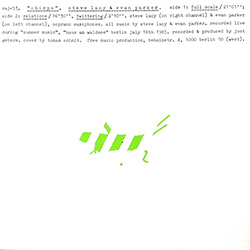
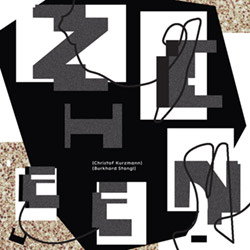
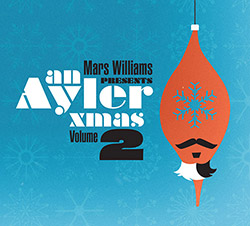

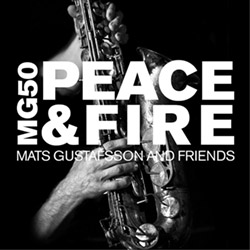

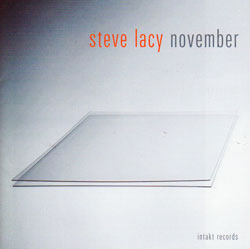
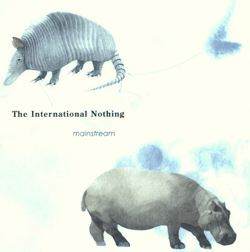
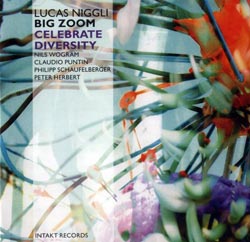
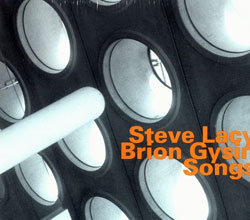
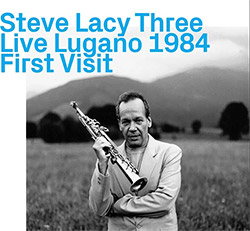

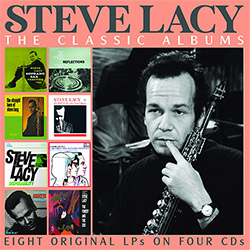
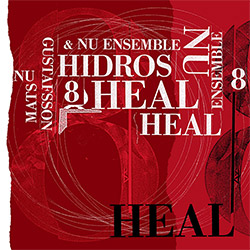
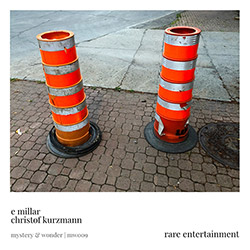
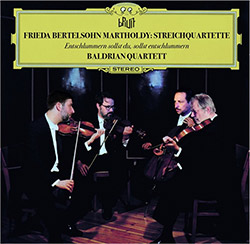
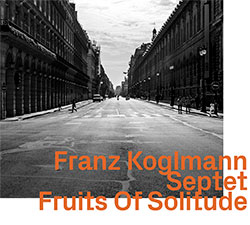









![BlueRing Improvisers: Materia [2 CDs]](https://www.teuthida.com/productImages/misc4/36513.jpg)








![Wheelhouse (Rempis / Adasiewicz / McBride): House And Home [VINYL]](https://www.teuthida.com/productImages/misc4/36462.jpg)
![+DOG+: The Light Of Our Lives [2 CDs]](https://www.teuthida.com/productImages/misc4/36009.jpg)


![Parker, Evan / Jean-Marc Foussat: Insolence [VINYL]](https://www.teuthida.com/productImages/misc4/36398.jpg)










![Deupree, Jerome / Sylvie Courvoisier / Lester St. Louis / Joe Morris: Canyon [2 CDs]](https://www.teuthida.com/productImages/misc4/36404.jpg)



![Eventless Plot | Haarvol: The Subliminal Paths [CASSETTE + DOWNLOAD]](https://www.teuthida.com/productImages/misc4/36232.jpg)










![Eventless Plot | Francesco Covarino: Methexis [CASSETTE + DOWNLOAD]](https://www.teuthida.com/productImages/misc4/36231.jpg)



![Das B (Mazen Kerbaj / Mike Majkowski / Magda Mayas / Tony Buck): Love [VINYL]](https://www.teuthida.com/productImages/misc4/36329.jpg)


![Eternities: Rides Again [CASSETTE]](https://www.teuthida.com/productImages/misc4/36247.jpg)
![Lopez, Francisco: Untitled (2021-2022) [2 CDs]](https://www.teuthida.com/productImages/misc4/36438.jpg)






![Money : Money 2 [2 CDs]](https://www.teuthida.com/productImages/misc4/35894.jpg)




![Klinga, Erik: Elusive Shimmer [VINYL]](https://www.teuthida.com/productImages/misc4/36258.jpg)
![CHANGES TO blind (Phil Zampino): Volume 9 - I Wave on a Fine Vile Mist [CD + DOWNLOAD]](https://www.teuthida.com/productImages/misc4/36061.jpg)

![Wallmart / Rubbish: Asset Protection [split CD]](https://www.teuthida.com/productImages/misc4/35900.jpg)


![+Dog+: The Family Music Book Vol. 5 [2 CDs]](https://www.teuthida.com/productImages/misc4/35897.jpg)
![Kuvveti, Deli : Kuslar Soyledi [CASSETTE w/ DOWNLOAD]](https://www.teuthida.com/productImages/misc4/36107.jpg)

![Brown, Dan / Dan Reynolds: Live At The Grange Hall [unauthorized][CASSETTE]](https://www.teuthida.com/productImages/misc4/36245.jpg)








![Palestine, Charlemagne / Seppe Gebruers: Beyondddddd The Notessssss [VINYL]](https://www.teuthida.com/productImages/misc4/36206.jpg)
![Palestine, Charlemagne / Seppe Gebruers: Beyondddddd The Notessssss [NEON GREEN VINYL]](https://www.teuthida.com/productImages/misc4/36207.jpg)

![Laubrock, Ingrid: Purposing The Air [2 CDs]](https://www.teuthida.com/productImages/misc4/35639.jpg)

![Yoko, Ono / The Great Learning Orchestra: Selected Recordings From Grapefruit [2 CDs]](https://www.teuthida.com/productImages/misc4/35841.jpg)









![Zorn, John / JACK Quartet: The Complete String Quartets [2 CDs]](https://www.teuthida.com/productImages/misc4/35609.jpg)

![Lonsdale, Eden: Dawnings [2 CDs]](https://www.teuthida.com/productImages/misc4/35480.jpg)



![Sorry For Laughing (G. Whitlow / M. Bates / Dave-Id / E. Ka-Spel): Rain Flowers [2 CDS]](https://www.teuthida.com/productImages/misc4/35985.jpg)

![Rolando, Tommaso / Andy Moor : Biscotti [CASSETTE w/ DOWNLOADS]](https://www.teuthida.com/productImages/misc4/36106.jpg)


![Electric Bird Noise / Derek Roddy: 8-10-22 [CD EP]](https://www.teuthida.com/productImages/misc4/35970.jpg)








![Elephant9 : Mythical River [VINYL]](https://www.teuthida.com/productImages/misc4/34624.jpg)



![Elephant9 with Terje Rypdal: Catching Fire [VINYL 2 LPs]](https://www.teuthida.com/productImages/misc4/35355.jpg)
![Deerlady (Obomsawin, Mali / Magdalena Abrego): Greatest Hits [VINYL]](https://www.teuthida.com/productImages/misc4/34876.jpg)







![Surplus 1980: Illusion of Consistency [CD]](https://www.teuthida.com/productImages/misc4/35069.jpg)
![Staiano, Moe: Away Towards the Light [VINYL + DOWNLOAD]](https://www.teuthida.com/productImages/misc4/35037.jpg)
![Coley, Byron: Dating Tips for Touring Bands [VINYL]](https://www.teuthida.com/productImages/misc4/17906.jpg)

![Lost Kisses: My Life is Sad & Funny [DVD]](https://www.teuthida.com/productImages/misc4/lostKissesDVD.jpg)